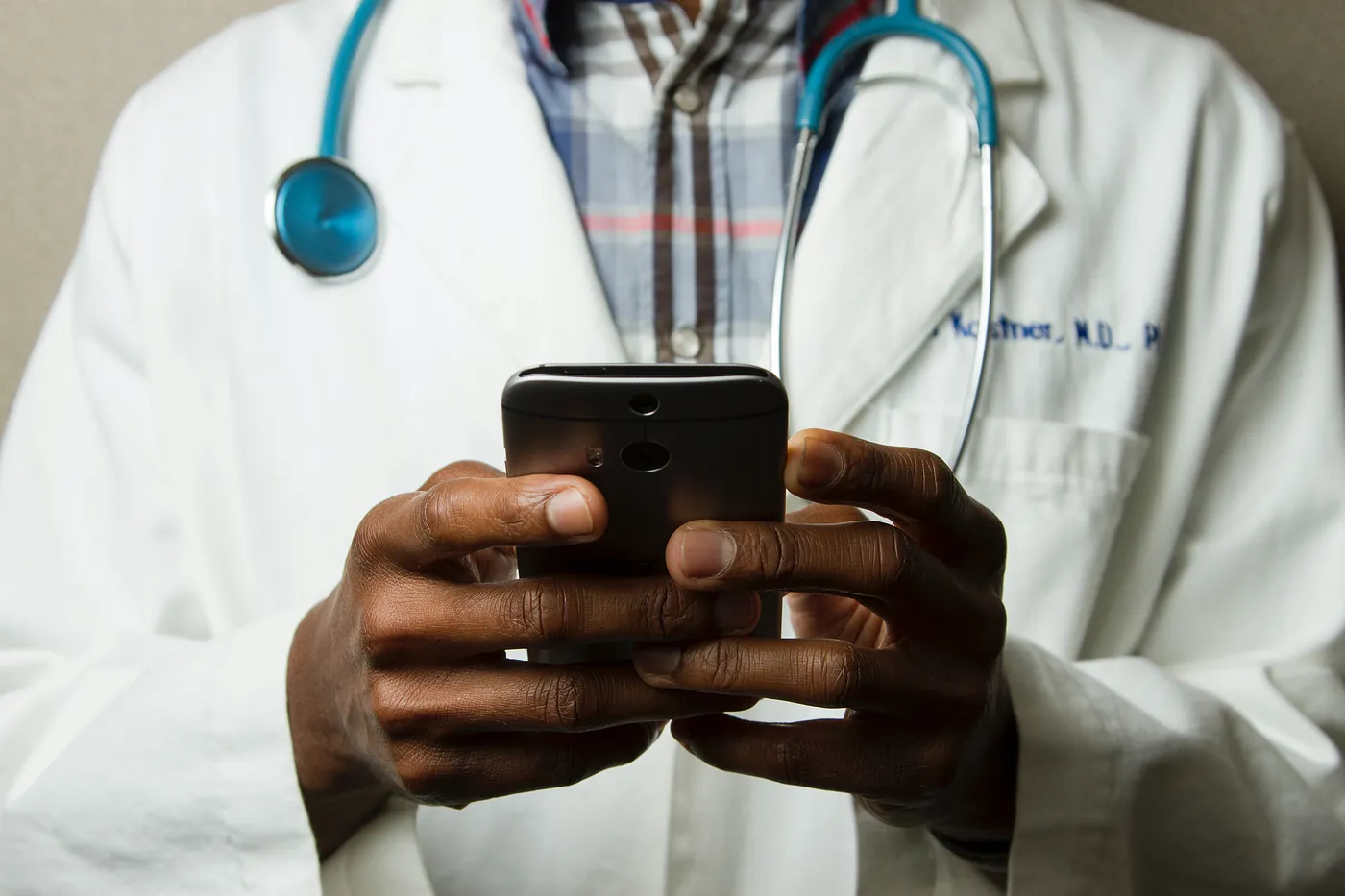KEYWORDS: ChatGPT, Healthcare, ChatGPT Healthcare, GenerativeAI, UseCases, HealthcareAI, Healthcare Use cases.
Recently, a study showed that researchers from Mass General Brigham have demonstrated the potential of large language models (LLMs), represented by ChatGPT to aid in clinical decision-making for breast cancer screening and breast pain imaging tests, according to healthitanalytics.com.[1]
Another example is an interesting survey by Simon-Kucher, a global consulting firm. It asked which part of healthcare/disease management will be most affected by AI technologies such as ChatGPT.
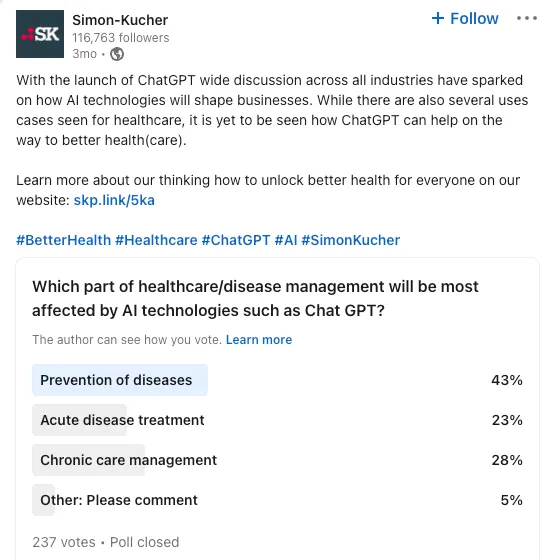
Image Source: https://healthitanalytics.com
The results showed that the majority (43%) voted for the “prevention of disease” category. Respondents also see potential in acute care (23%) and chronic care management (28%).[2]
Indeed, the complexity, specificity, and information opacity of the healthcare industry makes it difficult for generative AI to play a larger role.
Therefore, in this article, we will discuss how ChatGPT is transforming the healthcare industry, the use cases powered by ChatGPT, and how to ensure the quantity and quality of data under the specialty. We will also cover the new potential to explore the value of multimodal healthcare data.
1. The potential benefits of ChatGPT to transform the healthcare industry
In this section, we will discuss the potential benefits of ChatGPT not only for patients but also for doctors and medical institutions.
1.1 ChatGPT for Automation in Healthcare
First, physicians and medical institutions have a primary responsibility to care for patients by listening carefully, understanding their illnesses, making diagnoses, and initiating treatment plans.
However, there are plenty of repetitive tasks and daily routine tasks that doctors have to deal with.
In fact, ChatGPT is able to handle repetitive tasks and automate routine tasks such as scheduling follow-up sessions and patient appointments, assisting patients with treatments, maintaining patient records, and taking patient feedback and clinical notes.
It can also be used to manage an inventory of medical equipment and tools, as well as the payroll, to ensure that doctors have everything they need to treat their patients.
Medical record keeping is another area that ChatGPT can help with.
It could summarize patients’ medical histories, effectively streamline the record-keeping process, or even automatically summarize key details.
This saves time and energy for both doctors and administrative staff. Doctors can focus more on patients, while staff can work on how to improve doctor and nurse efficiency and customer satisfaction.
1.2 ChatGPT for Clinical Decision Support
While human physicians will always make the final call on healthcare decisions, ChatGPT can be used to provide real-time, evidence-based recommendations to healthcare providers to improve patient outcomes.
In the example above of assisting with breast cancer screening and breast pain imaging tests, ChatGPT has shown its potential.
ChatGPT is able to provide extra help, especially when it comes to potential drug interactions between different medicines.
When a patient comes to the doctor with a pre-existing condition that they are being treated for, doctors have to be careful about prescribing medications and treatments.
In this case, ChatGPT can help clinicians save time, reduce errors, and improve patient care by providing quick and reliable assistance.
1.3 ChatGPT for Healthcare Trends Update
Despite their professional experience, doctors still need to update their knowledge because our world is full of diseases and illnesses, whether new or evolved. The most recent and serious case is the coronavirus pandemic.
The coronavirus has evolved rapidly. Its variants cause different health problems in people. During the peak of the pandemic, misinformation about the virus was all over the Internet.
There is a lack of awareness among doctors and individuals about various diseases and illnesses.
So, to solve this problem, ChatGPT in healthcare can be used to stay updated with the latest trends in healthcare.
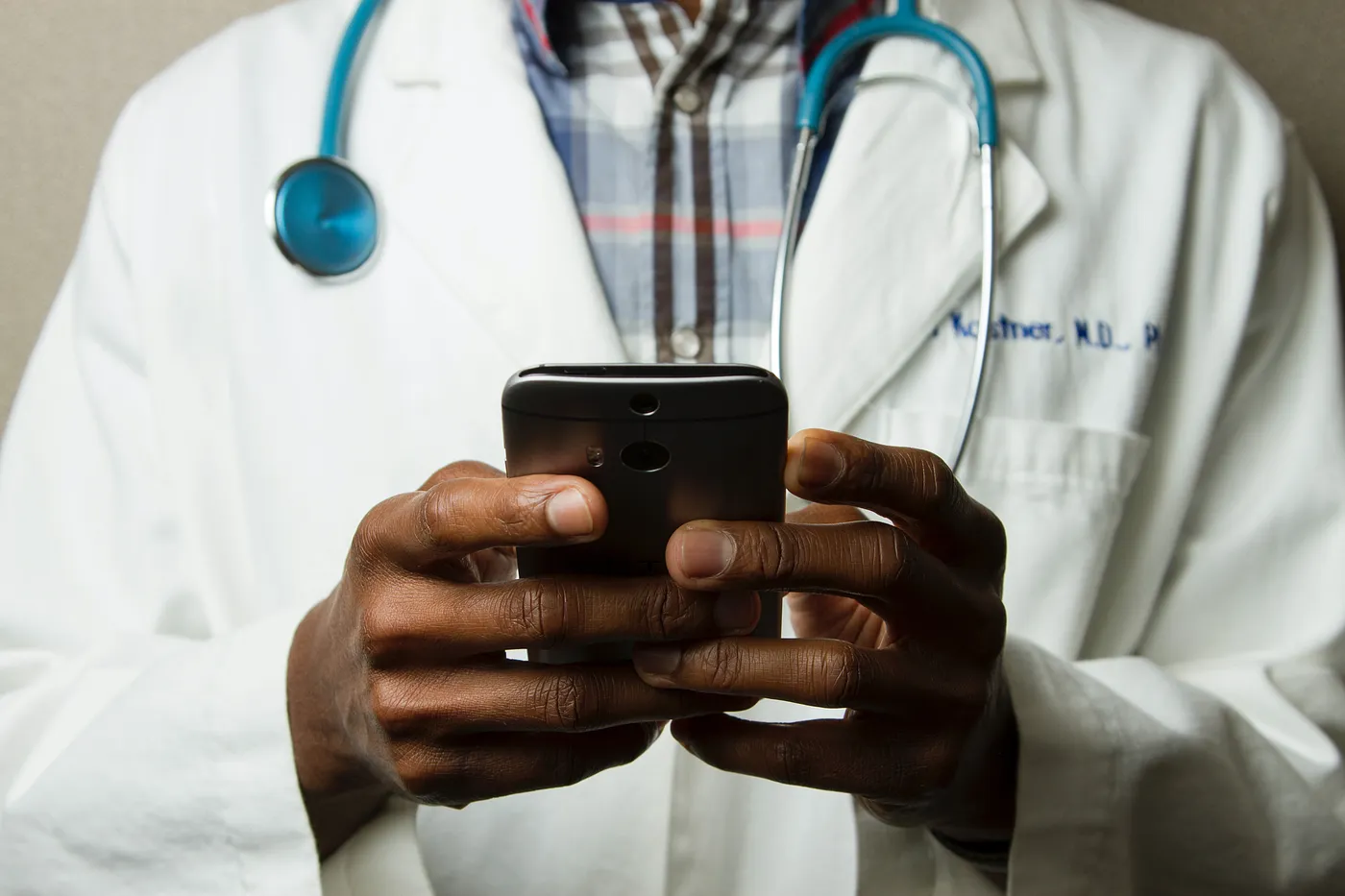
Photo by National Cancer Institute on Unsplash
1.4 ChatGPT for Telemedicine
Thanks to the development of AI, people can now consult a doctor directly through an APP on their phone, rather than running to a hospital and waiting in line for hours, especially when they are sick.
After the COVID-19 pandemic, we have seen an increase in the use of telemedicine. More patients now prefer to receive care from the comfort of their own homes.
For doctors and clinics, ChatGPT can be used to develop a virtual assistant to help patients schedule appointments, receive treatment, and manage their health information.
Patients can describe their symptoms in natural language, overcoming the limitations of geography, time and language.
They will also receive initial professional results with real-time, evidence-based recommendations.
A ChatGPT-powered virtual assistant can provide patients with the guidance and support they need to manage their health remotely such as eating properly, exercising, and maintaining a work-life balance.
1.5 ChatGPT for Clinical Trials Recruitment
Clinical trials are vital to the advancement of healthcare. They play an essential role in the development of new treatments and therapies for various health conditions.
However, finding the right participants for clinical trials can be challenging.
In this case, ChatGPT can help researchers easily identify patients who meet the inclusion criteria by analyzing large amounts of patient data.
It can help ensure the efficacy and target of the trials, the diversity of the population, and the accuracy of the results.
1.6 ChatGPT for Personal Healthcare
With the help of LLMs like ChatGPT, virtual private doctors and virtual healthcare assistants have become possible.
First, by entering the patient’s information, ChatGPT for Healthcare can find the correct dosage and means of medication, as well as drug allergies.
If a patient has pre-existing conditions and has been treated, the virtual private physician can suggest possible drug interactions between different medications.
In addition, with the help of wearables, sensors and other monitoring devices, ChatGPT in healthcare can be used to remotely monitor patients by analyzing data from these devices, providing real-time insights into a patient’s health status, such as real-time alerts regarding trends and deterioration.
It has the potential to improve patient outcomes and reduce healthcare costs.
ChatGPT has the potential to address not only physical health, but also mental health.
As awareness of mental health issues increases, the use of AI-powered chatbots such as ChatGPT, with its empathetic conversational skills and ability to provide evidence-based guidance, can provide preliminary support to individuals experiencing emotional distress.
ChatGPT can be used as a supplemental resource for mental health professionals, such as therapists and counselors, to provide insight into patient needs and concerns.
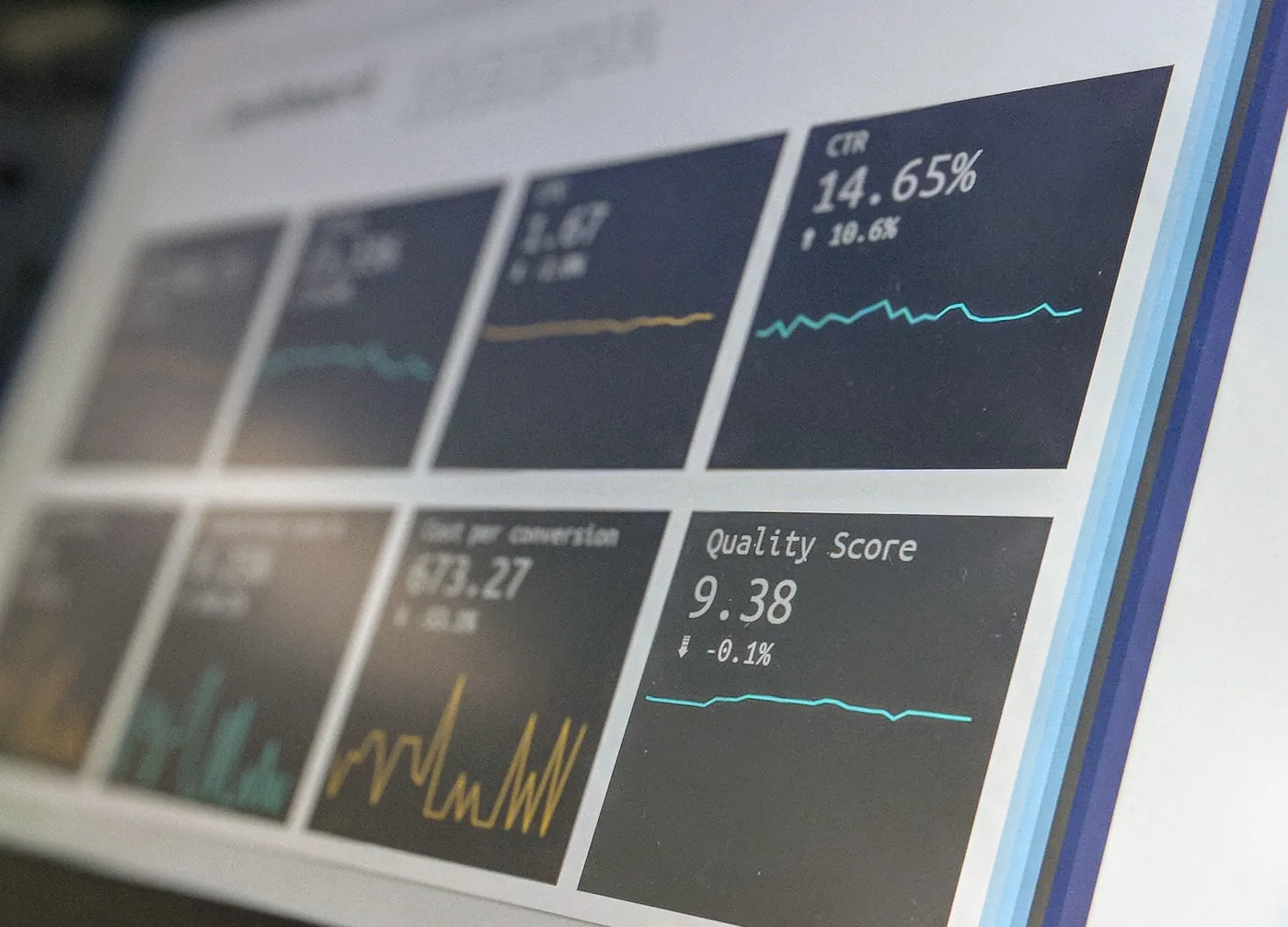
Photo by Stephen Dawson on Unsplash
2. ChatGPT Integrated Use Cases
We have already discussed the possible potentials of ChatGPT in healthcare, so in this section, we will take a look at companies that produce ChatGPT-driven products and services.
The image below is from Medical Futurist and shows more details. [3]
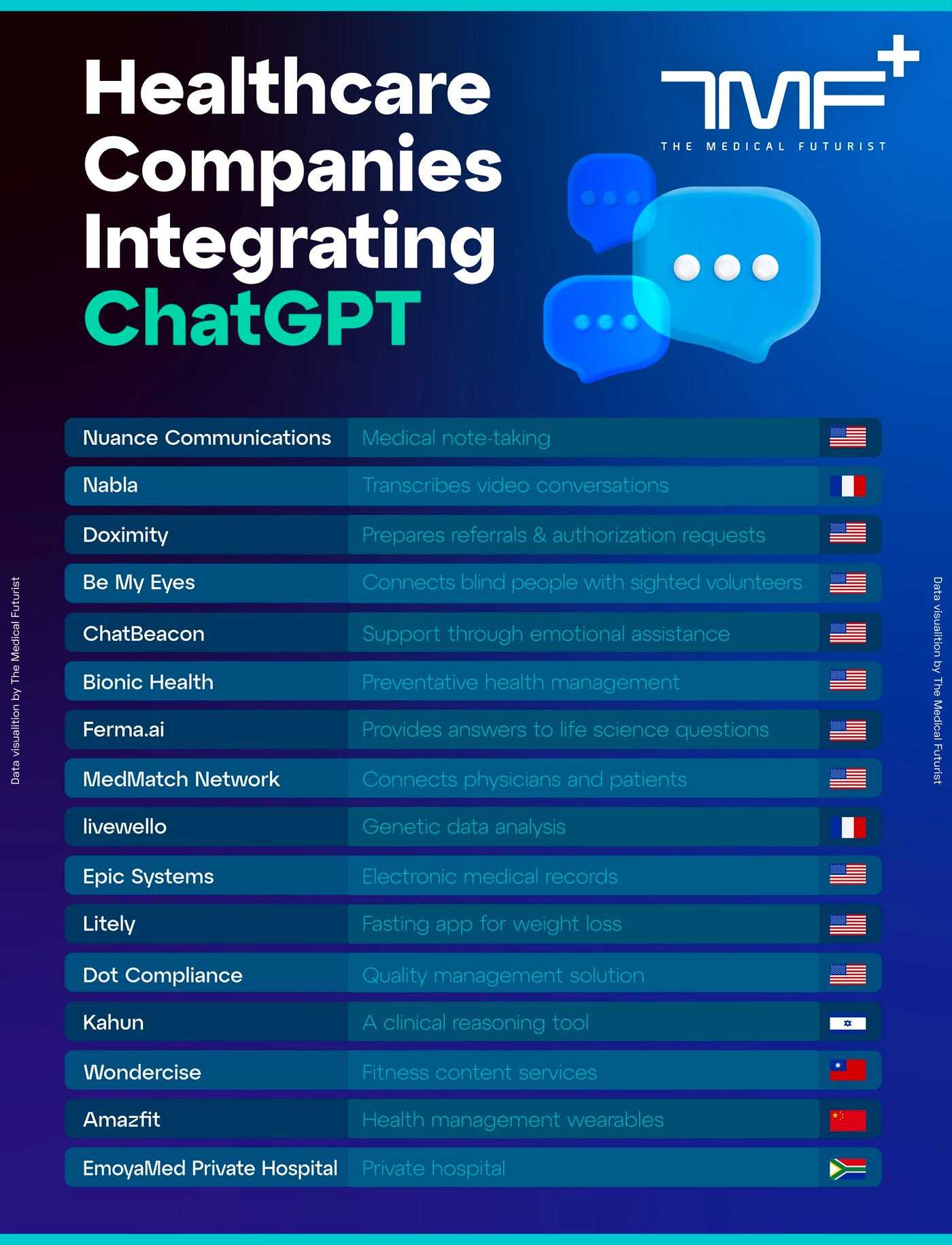
Image Source: https://medicalfuturist.com
2.1 Nuance Communications
Nuance Communications, a Microsoft company, is the pioneer and leader in conversational A.I. and ambient intelligence, with solutions used by 10,000 healthcare organizations worldwide. [4]
Earlier this year, Nuance announced Dragon Ambient eXperience (DAX™) Express, a workflow-integrated, fully automated clinical documentation application that is the first to combine proven conversational and ambient AI with OpenAI’s newest and most powerful model, GPT-4. [5]
2.2 deepscribe.ai
DeepScribe is an AI medical scribe that produces comprehensive clinical documentation simply by listening to the natural conversation between clinician and patient. By generating accurate, HIPAA-compliant, and secure documentation directly within a clinician’s EHR, DeepScribe enables clinical organizations to improve patient care, increase efficiency, and reduce burnout. [6]
2.3 ChatBeacon
ChatBeacon provides support through information, emotional support, assessments, coping strategies, self-care exercises, reminders, crisis support, and referrals with the goal of empowering individuals to manage their mental health and improve their well-being. Their Mental Health Assistant is powered by ChatGPT[7].
2.4 Kahun
Kahun integrates an AI physician chatbot with ChatGPT.
Kahun’s pre-consult clinical assessment tool delivers a gold-standard clinical summary to healthcare providers.
Based on knowledge cited in peer-reviewed articles and medical textbooks, physicians can trace each clinical recommendation back to the original medical publication to support clinical decisions in primary and urgent care settings. [8]
2.5 BastionGPT
BastionGPT is a private and secure edition of ChatGPT designed specifically for US healthcare environments.
BastionGPT is the efficient digital assistant healthcare providers have been waiting for, providing everything from an extra set of eyes for potential drug interactions to recommendations for relevant medical codes.
BastionGPT helps providers translate complex health concepts into patient-friendly language, enabling more informed patient decisions. It goes a step further by improving provider-patient communication, building trust and fostering a more engaged patient community. [9]
In the next article, we will cover topics such as the challenges and opportunities of generative AI in healthcare, with a particular focus on the quantity and quality of data, as well as new opportunities to explore the value of multimodal healthcare data.
Please stay tuned.
(TO BE CONTINUED)
Reference List:
https://medicalfuturist.com/17-healthcare-companies-that-already-integrated-chatgpt-infographic/
https://www.nuance.com/healthcare.html
https://www.deepscribe.ai/ai-medical-scribe
https://www.chatbeacon.io/industry-chatgpt/mental-health-chatbot
https://www.kahun.com/solutions



